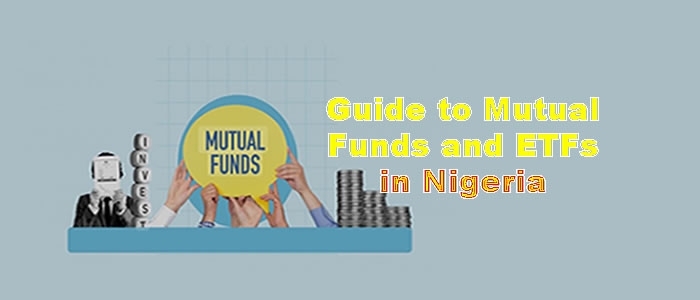
Investing in financial markets has become increasingly popular in Nigeria as individuals seek ways to grow their wealth and secure their financial future. Among the myriad investment options available, mutual funds and exchange-traded funds (ETFs) stand out due to their diversification, professional management, and accessibility. This guide aims to provide a comprehensive overview of mutual funds and ETFs in Nigeria, helping investors make informed decisions.
What Are Mutual Funds?
A mutual fund is an investment vehicle that pools money from multiple investors to purchase a diversified portfolio of securities such as stocks, bonds, and other assets. Managed by professional fund managers, mutual funds aim to achieve specific investment objectives, whether growth, income, or capital preservation.
Types of Mutual Funds in Nigeria
Equity Funds: Invest primarily in Nigerian stocks, suitable for investors seeking capital appreciation.
Bond Funds: Focus on government or corporate bonds, offering steady income with lower risk.
Money Market Funds: Invest in short-term debt instruments, ideal for capital preservation and liquidity.
Balanced Funds: Combine equities and bonds to balance risk and return.
Benefits of Mutual Funds
- Diversification reduces risk.
- Professional management.
- Accessibility for retail investors.
- Liquidity, allowing investors to redeem shares.
- Regulatory oversight ensures transparency.
What Are ETFs?
Exchange-Traded Funds (ETFs) are investment funds traded on stock exchanges, similar to stocks. They typically track an index, commodity, or a basket of assets, allowing investors to gain exposure to a broad market segment with ease.
Types of ETFs in Nigeria
- Index ETFs: Track Nigerian stock indices like the NSE All-Share Index.
- Sector ETFs: Focus on specific sectors such as banking, oil and gas, or telecommunications.
- Thematic ETFs: Invest based on themes like technology or renewable energy.
Benefits of ETFs
- Liquidity – traded throughout the trading day.
- Transparency – holdings are disclosed regularly.
- Cost-effective – generally have lower fees than mutual funds.
- Flexibility – can be bought and sold like stocks.
Regulatory Environment in Nigeria
The Securities and Exchange Commission (SEC) Nigeria regulates mutual funds and ETFs. The SEC ensures transparency, investor protection, and fair trading practices. Fund managers must adhere to strict disclosure and operational standards, providing investors with confidence in the market.
How to Invest in Mutual Funds and ETFs in Nigeria
Step-by-Step Guide
Assess Your Investment Goals: Determine your risk tolerance, investment horizon, and financial goals.
- Research Available Funds: Review fund prospectuses, performance history, fees, and management team.
- Open an Investment Account: Through licensed fund management companies or brokerage platforms.
- Complete KYC Requirements: Submit necessary identification and documents.
- Fund Your Account: Deposit funds into your investment account.
- Choose Your Funds: Select mutual funds or ETFs aligned with your objectives.
- Monitor Your Investment: Regularly review performance and stay informed about market trends.
Costs and Fees
Management Fees: Charged by fund managers for managing the fund.
Entry/Exit Loads: Fees on buying or selling fund units.
Other Fees: Custodian, audit, and regulatory fees.
Risks and Considerations
While mutual funds and ETFs offer diversification and professional management, they are not risk-free. Investors should consider:
- Market risk leading to potential loss of capital.
- Liquidity risk, especially for less traded ETFs.
- Management risk if fund managers make poor investment decisions.
- Costs eating into returns if fees are high.
- Comparing Mutual Funds and ETFs
|
Aspect |
Mutual Funds |
ETFs |
|
Trading |
Once daily at NAV |
Throughout trading hours like stocks |
|
Cost |
Usually higher fees |
Generally lower fees |
|
Transparency |
Less frequent disclosure |
Regularly disclosed holdings |
|
Flexibility |
Less flexible |
More flexible for active trading |
|
Investment Minimum |
Often higher |
Usually low or no minimum |
Future Outlook of Mutual Funds and ETFs in Nigeria
The Nigerian investment landscape is evolving with increased awareness, technological advancements, and regulatory reforms. The growth of digital platforms facilitates easier access for retail investors. The increasing variety of ETFs, especially those tracking Nigerian and African markets, presents new opportunities. As Nigeria's economy diversifies, mutual funds and ETFs are poised to play a vital role in retail and institutional investment strategies.
Conclusion: Mutual funds and ETFs are powerful investment tools that offer diversification, professional management, and liquidity, making them suitable for a broad spectrum of investors in Nigeria. Understanding their features, benefits, risks, and regulatory environment is essential for making informed investment decisions. As Nigeria's financial markets continue to develop, these investment vehicles are likely to become even more integral to wealth-building strategies.


 .jpg)




 Essential Certifications And Education For Advancing In Business
Essential Certifications And Education For Advancing In Business  Workplace Soft Skills That Make You Stand Out in the Business World
Workplace Soft Skills That Make You Stand Out in the Business World  Best Investment Opportunities To Grow Your Money
Best Investment Opportunities To Grow Your Money